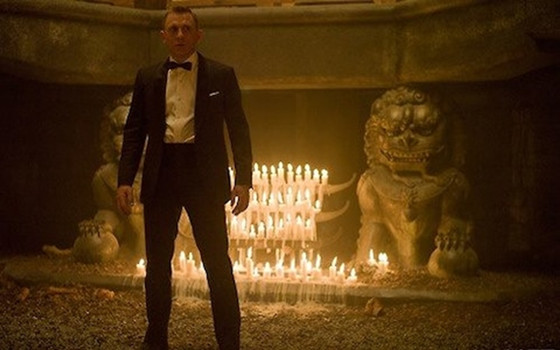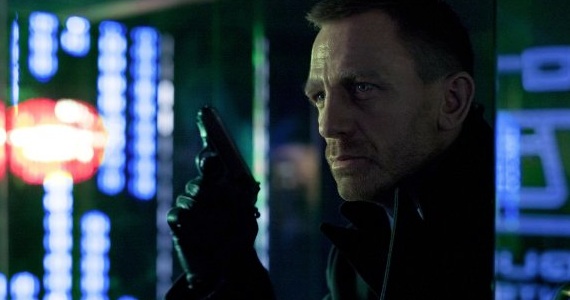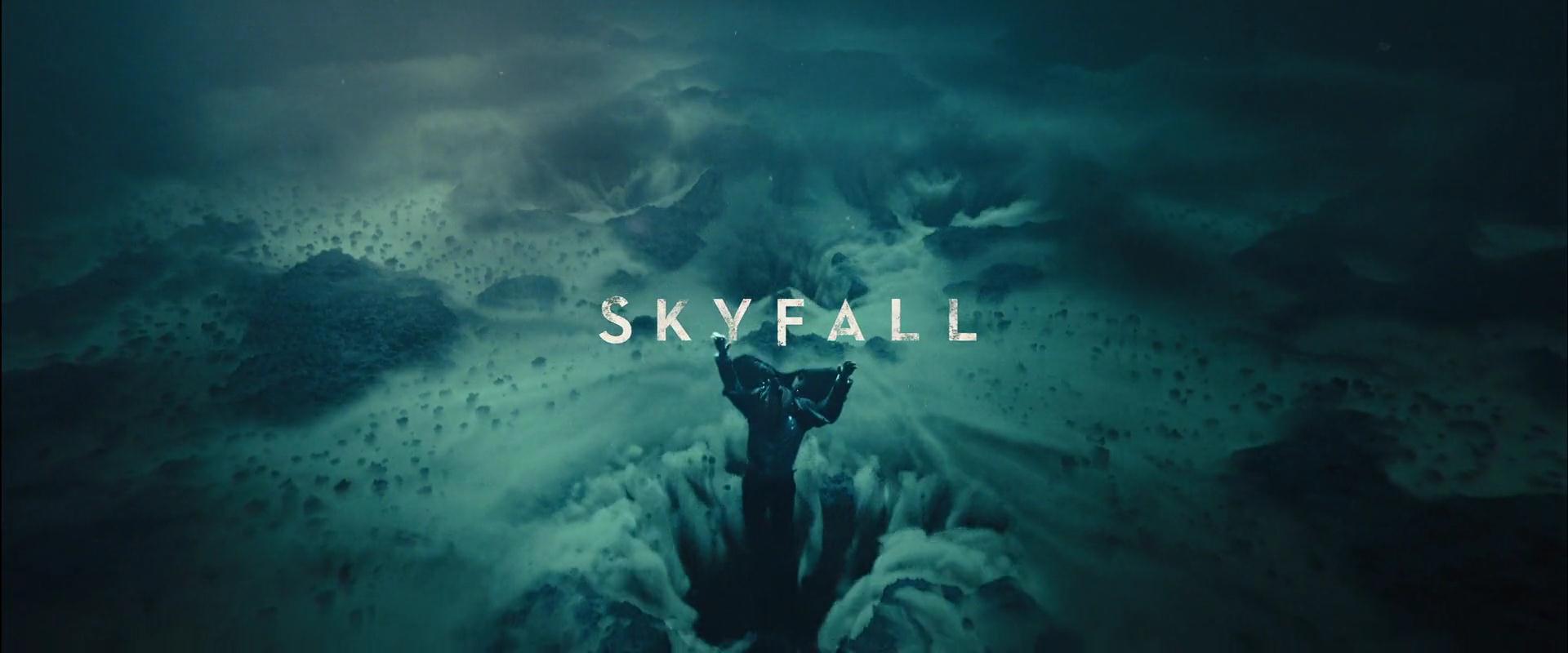5. Sam Mendes’ direction

Sam Mendes is the only Oscar-winner to direct a Bond film. (He also directed the follow-up, Spectre.) Though it is treated like an action movie, of course, it is also treated like a psychological drama (which only Casino Royale can really claim among all the other films).
Mendes and his screenwriters (Neal Purvis, Robert Wade, and John Logan) recognize the need for real emotional stakes. Though some other Bond movies have tried to add similar depth (On Her Majesty’s Secret Service being one of the best examples), none have succeeded quite of the level of Skyfall.
With that kind of forethought setting the precedent for the film, Mendes and crew really set out to conceive scenes that captured a certain mood more effectively than any of the other Bond films.
For example, the well-chosen music in the scene where Silva murders Severine sets a disconcerting tone much more effectively than traditional scoring would have. (Side note: Thomas Newman’s score for Skyfall is evocative and vivid.)
Later on, as Silva is closing in on murdering M while she is facing discipline for earlier actions, she is reading poetry (specifically Tennyson’s Ulysses) which suggests that humans will fail but will press on with great resolve following those failures. It’s a beautiful section of poetry which unironically announces M’s grit and adrenalizes Bond’s attempt to stop Silva before he reaches her. It’s not bombastic to suggest that no other director has attempted such an emotional and artistic scene with a Bond film before.
Finally, Mendes had enough confidence in the material to allow the first part of the climax to echo Home Alone, as Bond, his old friend Kincade, and M booby-trap Skyfall in preparation for facing off against Silva and his associates. Mendes and the script let the scene play with no winking at the audience and much more dark humor than we saw from Kevin and the Wet Bandits.
In the end, that is what Mendes brought to Skyfall more than anything: supreme trust in the material. He knew that with the strong script he was working from, there was no need to artificially pump up scenes or fearfully inject obvious humor; he only needed to approach the film like the cinematic treasure he knew it could be.
6. The most thematically resonant Bond film

Putting together all of the above reasons, Skyfall becomes the most thematically and emotionally resonant Bond film. It has something to say about where Bond came from; it has something to say about what it is like to be an agent who kills for one’s country; it has something to say about how one is affected by giving every single part of oneself to your job. These introspective themes are far more than most of the previous films have seen fit to delve into (with the notable exception of Casino Royale, especially in its opening scenes).
Not only that, but the movie is more interested in Bond’s backstory than viewers have ever seen before. It trusts the subtlety of the details to flesh him out as a person without revealing every single thing about his childhood and parents. Instead of the quip-delivering, women-seducing, death-providing spy content to be an enigma, Skyfall’s James Bond is a literally and figuratively scarred man who must understand himself from the inside out in order to soldier on.
Those themes reach a pinnacle in one the darkest moment of the movie, when Silva invites M to kill both herself and him with the same bullet to end both of their suffering. Never has the violence and fallout of the life of a spy been treated with such soberness in a 007 film. It’s a chilling moment in a movie full of chills that speaks to the fervor with which Silva is chasing his revenge. M is already bleeding out and the audience can’t help but wonder if killing them both would be the right call at that point. But Bond takes the choice away and is able to share important final moments with M.
It’s fitting that those final scenes in a church give the audience the decisive intersection between the film’s three tortured characters. Bond ends up the only one alive, fulfilling Silva’s hope from minutes earlier. Both Silva and M gave everything for their cause. Silva’s death stems from his obsession with vengeance while M’s seems the only possible conclusion for someone in her line of work: the same conclusion that will eventually end James Bond’s story one day.
Great cinema sits in the audience’s mind, heart, and stomach long after the final credits roll. It’s Skyfall’s enduring Bond legacy that when it ends, it stays with its viewers, resonating like any powerful drama would, and that is something that no other Bond film can claim.
7. Adele’s theme song

Since Skyfall is a more affecting film, it helps that its theme song is one of the most beloved Bond songs of all time. Adele understands the way that bombast plays into the best Bond songs, but also realizes that it cannot simply be bombast, it must be coupled with emotion.
Like the movie itself, Adele’s Oscar-winning song ascends much higher than it seems like it should be able to. Like the title of the film, Skyfall in the song must represent the idea of the world ending (or the “sky falling”) but also must represent something in Bond’s past that he is forced to return to.
Like all of the most enduring Bond songs, Skyfall manages to be both seductive and thoughtful. Adele’s iconic voice supplies the lyrics with the requisite emotion and vigor, giving the aftermath of Bond getting shot an appropriate amount of pathos. The first line of the song (written by Adele and Paul Epworth) states “This is the end” and a few lines later references drowning.
The song walks a path that straddles the literal and figurative meanings of what viewers have just seen (Bond getting shot) and what they will eventually see, in a way that works perfectly. Adele sings about facing it “all together” when the sky “crumbles,” echoing the last half hour of the movie as the suavity and organization the audience expects comes tumbling down.
To introduce a movie like Skyfall, the producers needed a firecracker of a song and a superstar to sing it. They got both. And when Bond limply floats into the depths and Adele’s voice commands the screen, there is no doubt that what will follow will take the audience on a journey they are not fully prepared for. That anxiety and excitement is what powers the whole film.
Author Bio: Chad Durham is co-editor and contributing writer for RogueAuteurs.com. He also participates bi-monthly in the Rogue Auteurs podcast. His day job is high school English teacher. He has been in love with movies since seeing The Sting when he was 12. The thrill and emotion of seeing a great movie for the first time will always be one of his favorite feelings.